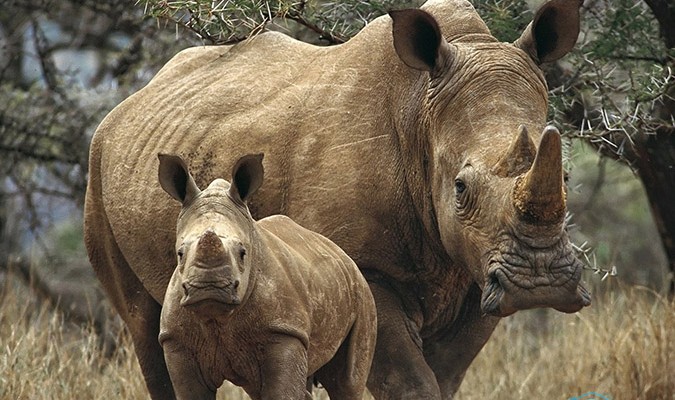Rhino horn - Demand reduction in Vietnam
The demand reduction for rhino horn in Vietnam was identified as one of the main driving forces for the escalating poaching of rhinos in the report published by Traffic in 2012
Rhino is the mammalian species most recognizable due to the unique horns and large body size. Three of the five remaining rhino species is classified as critically endangered rhino Java, Sumatra, and a species of black rhinos will be boss in the group is about to endangered Indian rhinoceros. Demand for rhino horn in Asia is driving the poaching of rhinos in Africa and Asia, rhino horn is mainly used by wealthy individuals as a supposed health tonic and as a means to flaunt their wealth: The buying and selling of rhino horn is illegal under international and national legislation in Viet Nam.
On existing species are poaching with dizzying speed. In 2012, 668 rhinos were poached. By 2013, this figure is more than thousand children. Since the beginning of the year, about 821 rhinos were poached in South Africa. One of the causes of this situation is due to the demand for rhino horn of some countries, especially China and Vietnam. Last year a record 1,004 rhinos were illegally poached in South Africa, which has more rhinos than any other country. Another 821 have been killed this year.
The illegal poaching of rhinos is one of the biggest threat to the survival of the rhino with some predicting that rhinos could be extinct by 2026 if the current escalation in poaching continues. South Africa spends many millions of dollars annually trying to stop poaching. More poachers are being arrested than ever before. Still, illegal poaching intensifies, driven by demand in Asia and the high price rhino horn fetches.
This explosion in poaching is relatively recent – only 13 rhinos were poached in South Africa in 2007. A key reason for this is the soaring price of rhino horn: it can reach $100,000 a kilogram on the black market, rivalling the price of cocaine and gold.
.jpg)
The demand for rhino horn is the biggest threat to the survival of all rhino species.
The demand reduction for rhino horn in Vietnam was identified as one of the main driving forces for the escalating poaching of rhinos in the report published by Traffic in 2012, The South Africa – Viet Nam Rhino Horn Trade Nexus: written by Tom Milliken and Jo Shaw. In 2013 the CITES Parties made decisions to compel Vietnam to improve law enforcement, curtail rhino horn consumption and engage indemand reduction in Vietnam campaigns, The next couple of years and the activities that we do will be critical in determining the very survival of the rhino.
“These poll results demonstrate that, even in a relatively short period of time, our demand reduction in Vietnam campaign has succeeded in significantly and dramatically altering public perception and influenced behaviour,” she said. “The results offer a vital ray of hope for the survival of rhinos.”
Do Quang Tung, director of the Vietnam CITES management authority, said: “The demand for rhino horns by just a small proportion of people in Vietnam has not only damaged the position of Vietnam in international forums but also leveraged the poaching of rhinos.”
With an economy growing at a rate faster than those of G7 nations, Vietnam is generating unprecedented individual wealth and an ability to purchase status-conferring luxury products including rhino horn. It is imperative to change behaviour by addressing emotional and functional drivers for consumption within these groups through the application of robust demand - reduction approaches.

Launching his campaign to reduce demand for rhino horn in Vietnam
The demand for rhino horn is the biggest threat to the survival of all rhino species. The International recognises that in order to secure a future for all rhinos we need to win the hearts and minds of the people who are currently buying rhino horn; who are consequently driving the illegal wildlife trade in rhino horn in order to persuade them not to buy rhino horn. This project is the only demand reduction campaign that is being driven by an evidence-based social-science approach targeted at the key consumers of rhino horn. The campaign demand reduction in Vietnam also uses positive Vietnamese cultural references.
"To change consumer behavior from centuries and against intelligent approach from the criminal organization, requires a behavior change campaign smart, strong and enduring" according founder also is CEO of Freeland, Steve Galster. "Workshop on the efforts to the demand reduction for wild animals in Vietnam is a major step in the establishment of a coalition of civil society organizations and government agencies to share the numbers materials and effective approach to the Vietnam persuade not to buy rhino horn, tiger, pangolin and endangered species. "